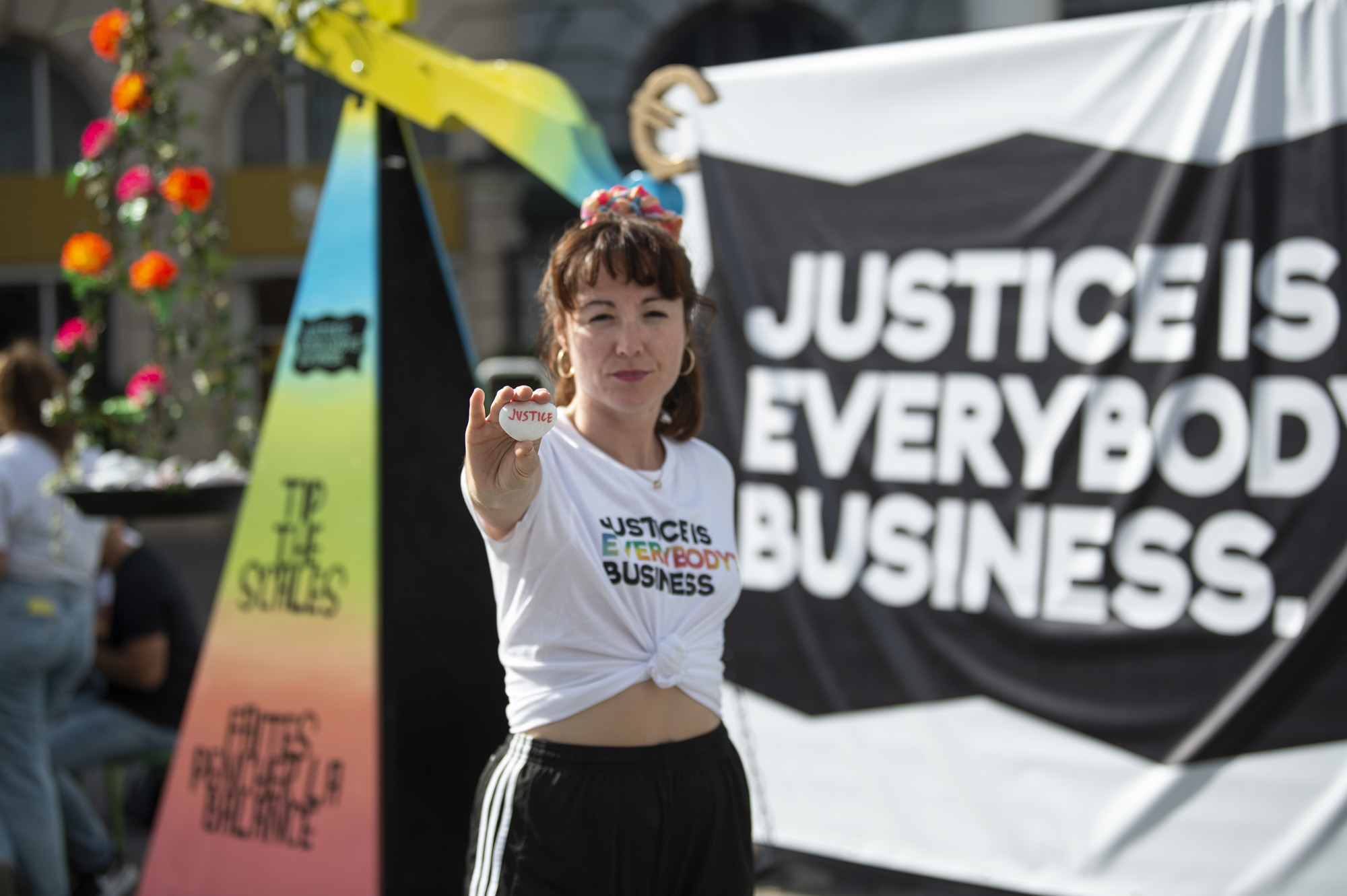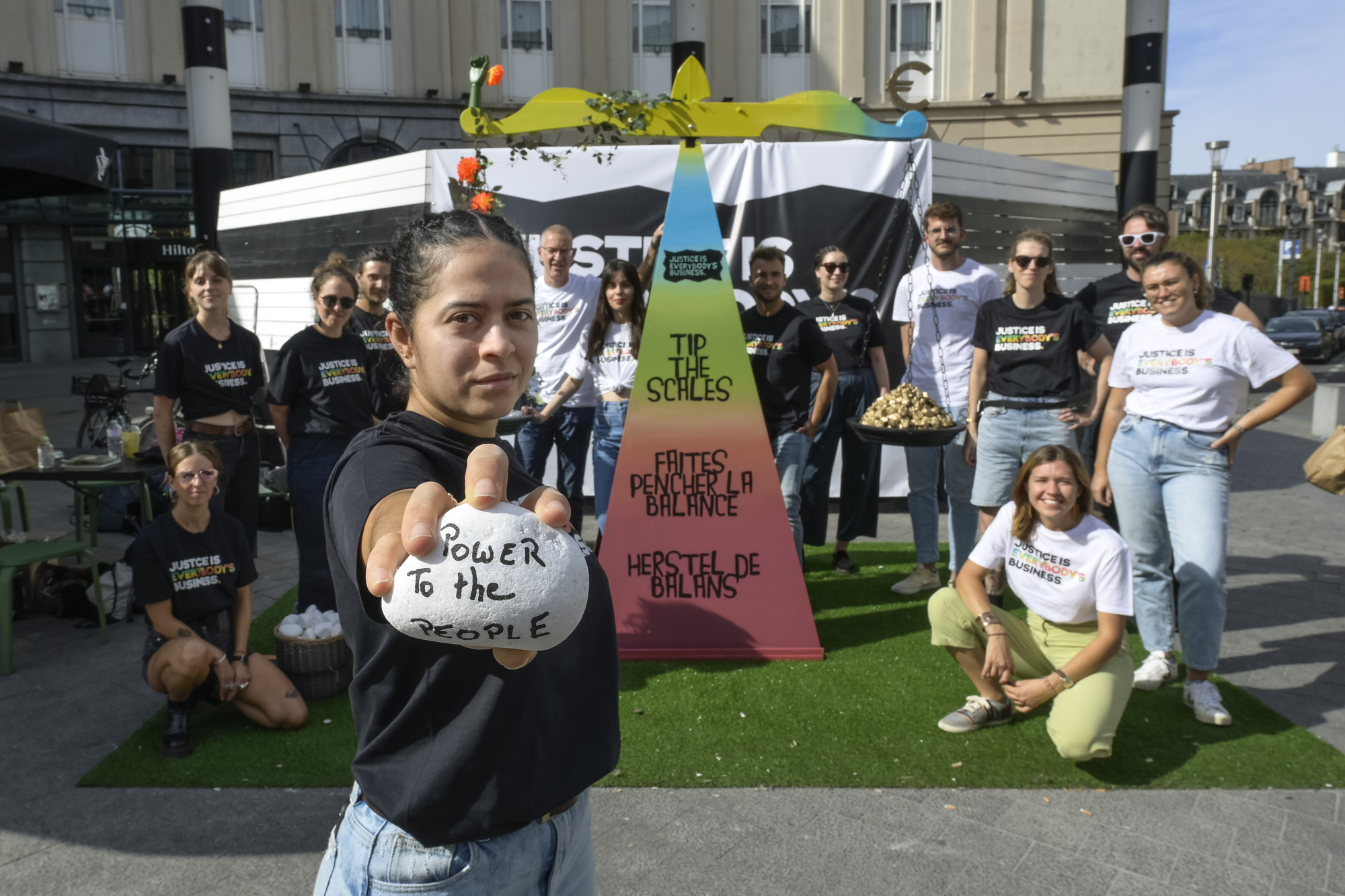GET YOUR GEARS READY – NEW CAMPAIGN STARTING TODAY
No more exploitation, no more environmental destruction, no more bad/unjust business practices by European companies. Those are the demands of the “Justice is Everybody’s Business” campaign, launching today in Brussels by over 100 civil society and trade union organisations. They ask the EU to issue a strong due diligence law that effectively prevents and holds business accountable for environmental and human rights violations.

Even though countries like France and Germany are leading the way with national human rights due diligence laws, they do not sufficiently protect both people and planet from the impact of European business operations. In February this year, the European Commission unveiled its proposal for an EU law requiring large companies to conduct checks on their investments and supply chains to identify, prevent and address human rights and environmental risks and impacts within and outside the EU. However, the proposal contains dangerous loopholes that will fail to guarantee justice.
The current proposal will fail to prevent harm beyond the first tier of the supply chain – a proposal unfit to effectively prevent human rights abuses that often occur at the beginning of the supply chains, several steps and sub-contractors away from the European companies.
It also fails to sufficiently empower those suffering from bad business practices to get justice in courts within the EU. Instead of striking down serious legal hurdles for those trying to file lawsuits against companies, the current proposal still makes it easy for corporations to evade responsibility.
“The dominant business model of ‘profit is king’ is killing our present and our future. When people come together as a counterweight, we can tip the scales of power. Otherwise EU leaders only hear what big corporate lobbies tell them.” - Claudia Saller, director at the European Coalition for Corporate Justice
The draft law also fails to oblige companies to reduce their greenhouse gas emissions and to hold them liable for failing to do so, despite their massive impact on the climate crisis.
“After a summer of droughts, heatwaves and fires, we are here to tell EU leaders that no amount of greenwashing can hide the new everyday reality of the climate crisis. Companies are major polluters, and as such, must be obliged to reduce their emissions. But if they fail to do so, people must be able to take them to court.” - Jill McArdle, corporate accountability campaigner at Friends of the Earth Europe
The campaign will be kicked off today with a public action in Brussels where a 3 metre tall ‘scales of justice’ will show the current imbalances between corporate profits on one side and human rights, environmental and climate justice on the other side – and that public pressure can tip the scales.
“Our campaign begins at the heart of European decision-making, but it doesn’t stop here. The EU should take up its responsibility and set future worldwide standards for more corporate accountability, responsible business conduct and ensure better and free access to justice including for trade unions. We will support all actions across Europe that will end human rights, including trade union rights, violations.” - Isabelle Schömann, Confederal Secretary at the ETUC
A poll conducted in nine EU countries last year indicated that over 80% of European citizens want strong laws to hold companies liable for overseas human rights and environmental violations.
In a 2021 petition, more than half a million people and 700 civil society organisations from around the world expressed support for such an EU law.
